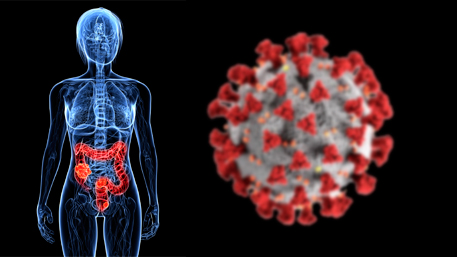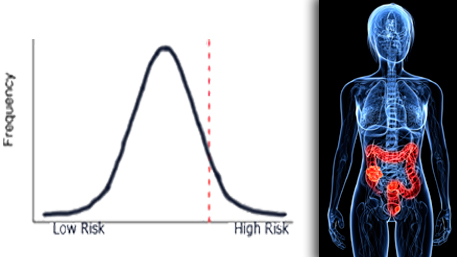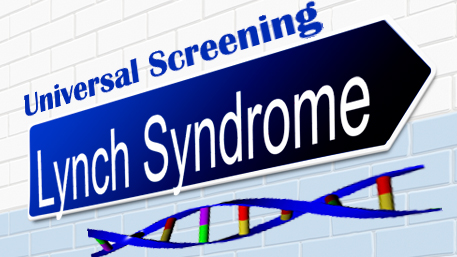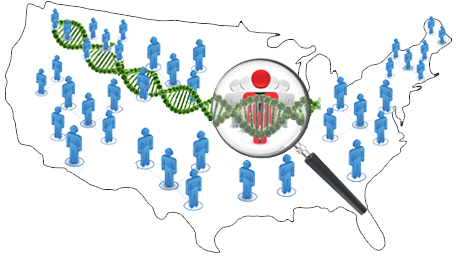Search Results
10 results for colorectal cancer
Stool-based Colorectal Cancer Screening in the COVID-19 Era

The COVID-19 pandemic continues to exact a devastating public health toll and in many indirect ways. While people work from home and avoid social contact, many may also be skipping important preventive care. Findings released in May of 2020 indicated a drop of between 86% and 94% in preventive cancer screenings in 2020 compared with
Posted on byShould polygenic risk scores be used in risk-stratified colorectal cancer screening?

Polygenic risk scores (PRS) summarize information about a person’s disease risk based on numerous DNA variants in their genome. Each variant confers very little increase in disease risk. But composite (or polygenic) risk scores made up of a number of such variants have been shown to stratify people to normal distributions of disease risks for
Posted on byCan an Aspirin a Day Prevent Colorectal Cancer in People with Lynch Syndrome?

Encouraging news for group at much greater risk of CRC Lynch syndrome (LS) is the most common cause of hereditary colorectal (colon) cancer (CRC). People with LS have a 50-70% risk of developing CRC in their lifetimes – far higher than the 4% risk within the general population where CRC is a leading cause of
Posted on byWhen Should You Be Screened for Colorectal Cancer?

Starting at the right time saves lives. People with a family history of CRC may need to start much earlier. Doctors and public health professionals strive to live by the creed “First, do no harm” but often wrestle with difficult choices, including when and how often screening tests should be conducted. Effective prevention of colorectal
Posted on byUniversal Screening for Lynch Syndrome: Can Tumor Sequencing Have a Larger Public Health Impact on Treatment and Prevention of Colorectal Cancer?

Lynch syndrome (LS) is the most common hereditary syndrome associated with increased risk of colorectal cancer (CRC), accounting for about 3% of CRC patients. LS is a dominantly inherited condition with mutations in several mismatch repair (MMR) genes. Persons with LS are also at increased risk for endometrial and other cancers. Lynch syndrome affects 1
Posted on byIntegrating genomics into population-based cancer surveillance in the era of precision medicine

Population-based cancer surveillance provides a quantitative measurement of cancer occurrence in the United States and globally. Core activities of surveillance include measuring cancer incidence and characterizing each cancer with regard to histopathology, stage, and treatment in the context of survival. Cancer surveillance has been crucial in informing policy and practice, as well as clinical and
Posted on byThe Cancer Moonshot, Hereditary Cancers and Population Genetic Screening

In September 2016, the Cancer Moonshot Blue Ribbon Panel delivered a report with 10 ambitious recommendations to shape cancer research for the next five years. One recommendation is to “expand use of proven prevention and early detection strategies.” [PDF 199 KB] There is a lot we can do to prevent cancer now— even with no
Posted on byRecommendations and Reality: What Personal Stories of Hereditary Cancer Can Tell Us

In public health and clinical medicine, recommendations for interventions are generally based on the evidence supporting improved health outcomes. Studies that inform these recommendations often focus on the evidence for benefits, especially when those benefits include lives saved. The harms that affect quality of life are more challenging to quantify and sometimes go unmeasured. Recommendations
Posted on by 1 CommentHuman Disease and Bad Luck: Acting on Genetic & Environmental Factors to Reduce Cancer Risk

In January 2015, a paper in Science created a “buzz” in the scientific community and the media. Based on statistical modelling, the authors suggested that “only a third of the variation in cancer risk among tissues is attributable to environmental factors or inherited predispositions. The majority is due to ‘bad luck,’ that is, random mutations
Posted on by 1 CommentData for Action in Public Health Genomics: Ensuring Equitable Implementation of Genomic Applications Across the Lifespan

In the more than 20 years since the completion of the Human Genome Project, basic and clinical research have delivered on the promise to develop genomic applications that can help prevent and treat many diseases across the lifespan. However, efforts to ensure equitable implementation of genomic applications have fallen short particularly among racial and ethnic
Posted on by

